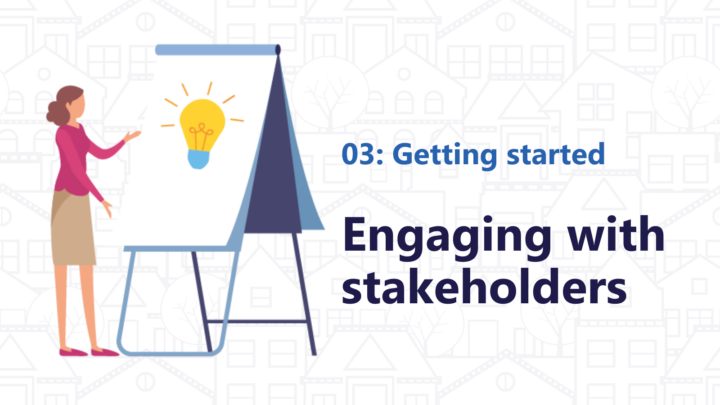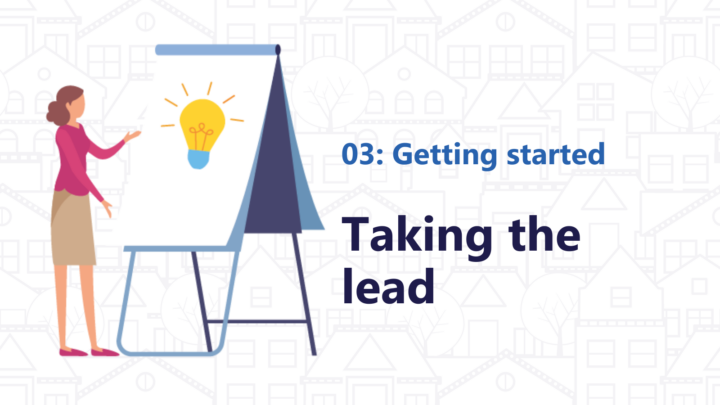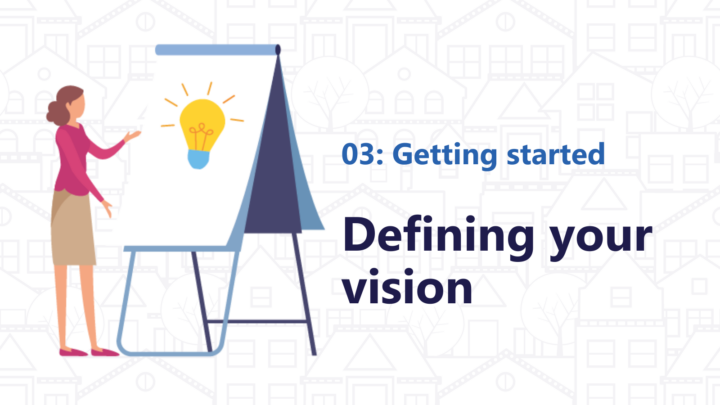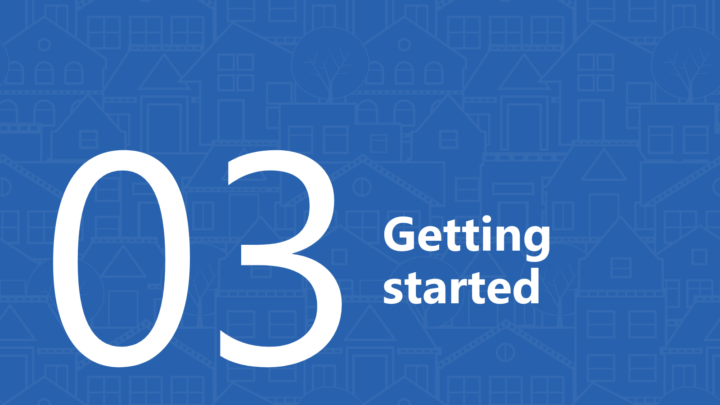Engaging with stakeholders

All projects will need some form of support for their scheme, regardless of if they’re a grassroots group or a developer, but not all groups will want support for the same kinds of things. Partners might include local community groups, community and town councils, local authority (LA), registered social landlords (RSLs), private developers, and more.
Why work in partnership?
For CLH groups
- RSLs have significant development, project management and housing management expertise
- RSLs can help support projects financially by accessing capital grant money or shouldering financial risk of housing development
- Partners can help train and build capacity within CLH organisations
- Partner could help accessing land that has been earmarked for development
For statutory bodies
- CLH groups may be able to measure and understand local housing need better than an organisation based elsewhere
- CLH groups can help developments gain community support, including overcoming NIMBYISM
- The CLH project can offer RSLs an opportunity to support their local communities, develop connections and meet social and ethical commitments
Statutory bodies such as local authorities, town/community councils, and even RSLs may be able to provide support such as:
- Capacity builder – providing advice and support on housing need/development, possibly even small grants
- Land/property provider – CLH group buy or lease land/property from RSL/LA
- Developer – CLH group procures RSL/LA as the developer
- Partner – CLH group and RSL/LA work in partnership throughout the project
- Housing manager/landlord – CLH group procures RSL/LA to manage homes in the long-term
Partnership options with an RSL
Role of RSL
Capacity builder
Land provider
Land provider (lease)
Lease provider
Leasee
Development agent
Co-producer
Management agent
Landlord
Description
RSL offers pro-bono advice and support to CLH organisations (could also include small grants)
CLH group buys site from RSL to develop their scheme
CLH group leases site from RSL to develop their scheme (leases should be long-term)
RSL owns the freehold of the homes and leases them to the CLH organisation on a long-term lease. Could include an option for the CLH organisation to buy the homes after 40 years
The CLH organisation owns land and leases it to the RSL to develop affordable housing. The RSL pay an annual ground rent to the CLH organisation
CLH organisation procures RSL to develop the homes. The RSL may also get involved in long-term management if there is will from both parties.
Both organisations co-produce a scheme together which can involve a number of ownership models
CLH organisation procures the RSL to manage the housing management services in the scheme long-term
Residents form a Tenant Management Organisation and develop a Management Agreement with the RSL to manage some housing management services (e.g. allocations, maintenance, etc.)
Freeholder
N/A
CLH organisation
RSL/LA
RSL/LA
CLH organisation
CLH organisation
Either
CLH organisation
RSL/LA
Funding options
Community grants from RSL/LA
CLH organisation
CLH organisation
RSL/LA
RSL/LA
CLH organisation (on-costs)
Dependent on model
CLH organisation
RSL/LA
Legal considerations
Informal support
Options agreement/Written agreement
Long-term lease
Lease agreement/Buy-back clause
Lease agreement/Covenants or clauses to ensure affordability in perpetuity
Development agreement
Partnership agreement
Management agreement
Management agreement












